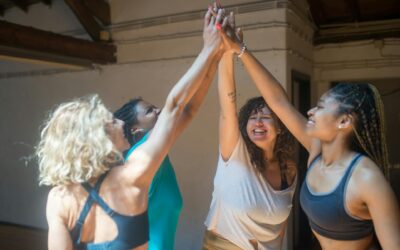Photo by Mac Mullins on Pexels.
← CHAPTER OVERVIEW
How can you live a life without regrets?
Dear Creatrix,
Do you know the band Lovers?
They are a band I used to adore, they are still very close to my heart, and they have a song called No Regrets.
This song could be the anthem of my life.
I think it should be the anthem of anybody’s life – because regrets don’t get us anywhere. Yet, many people spend a lot of time with regrets.
In the last lesson, we looked at the top five regrets people have on their deathbeds, but many people regret things not just towards the end of their lives, but quite regularly.
Do you have regrets, and would you be interested in finding out how to let them go? How to live a life without any regrets?
Then here we go.
Now, it is agreeably difficult, if not impossible, or even undesirable, to not make mistakes in life.
We all make mistakes, and this is in fact something fantastic and something to celebrate.
Because if we didn’t make mistakes, it would mean that we already knew everything and that there wasn’t anything left for us to learn, and that would make life boring and meaningless.
So mistakes are a necessary part of learning and growing.
Yet, often we treat a mistake like something we have to regret, be upset or ashamed about.
Has this ever been true for you?
Have you ever been upset with yourself for making a mistake or having tried something new and not succeeded right away?
And have you ever regretted having tried and failing, instead of trying as many times as it would have taken you to succeed?
Do you know why that is?
Why did you stop after trying just once or twice?
On the other hand, have you ever thought that when a baby began to take their first steps and fell, that that would mean that they are not going to learn to walk?
Or that they should know how to walk already without trying and failing first?
If it seems ridiculous to judge a baby learning something new and not getting it right when they first try, then why should we expect ourselves to get something new right on our first try?
The only difference between us and that baby is that we’ve mastered walking and talking and a few other things already, but it does not mean that we know and can do everything yet, but only the things we’ve already learned and mastered.
New things remain new things, and we need to try and practice them, before we become masters.
Or we can try them once, fail, give up and regret it for the rest of our lives.
Which approach seems more useful to you?
Or more fun? Or more exciting? Or leading to more exciting things?
With every new situation we encounter, we have all the right to make a first step and fail – without regretting that we’ve taken that step.
Because that failure will teach us more about the new situation and in our next attempt, we can profit from what we’ve learned from our failure – if we allow ourselves to do so.
This is the practical, daily approach to living without regrets:
We take a step forward, if we succeed and don’t hurt anybody on the way, we can congratulate ourselves and move on, and if we do hurt someone or get hurt, we can also congratulate ourselves, look at what we have to learn, apologize from the heart and show what measures we are taking to not make the same mistake again and then move on – no regret necessary – because we’ve done the best we could with the knowledge we had.
With this attitude (and hey, all it takes is practice, nothing else) we already have a pretty smooth ride through life.
And the more in tune we get with our inner knowing and intuition, we can even learn about a new situation or direction beforehand, to avoid bigger mistakes and obstacles and feel in if we’re on the right track.
But if we try something new for the first time, it can always lead to mistakes or at least unskilful behaviour.
The only other choice we have really is to stay where we are, in our comfort zone, and with that, we deny ourselves the chance to grow.
If we don’t leave our comfort zone, we can avoid mistakes, but we might regret having missed out on life, as we won’t learn what we could learn through our mistakes.
If we do make mistakes, but don’t apologize for them and learn from it, and do better next time, we will also have something to regret – because we’ve missed the chance to freely do better next time.
So, to live a life without regrets, on a daily basis, can not be done by staying in our comfort zone, it can barely be done without making mistakes, but it can be done, by recognizing that a mistake is nothing else but an opportunity to learn and grow.
With this toolkit, or mindset, you already have a pretty nice life ahead of you I think, but if you’d like to make sure that you also do not miss out on some things you would really love to do in this lifetime – we will find out today, what the important things are that you wouldn’t want to miss in life.
Photo by Anderson Guerra on Pexels.
But first, let’s have a look at what we’ve done this week so far.
We b…














